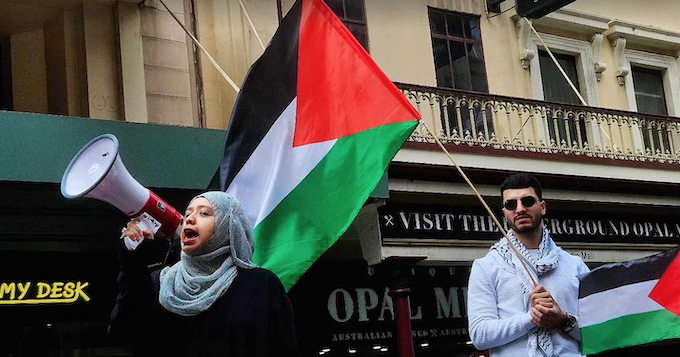COMMENTARY: By John Minto
Two years ago New Zealand joined 22 other countries in supporting the Ukrainian case against Russia at the International Court of Justice (ICJ) for its invasion of Ukraine.
We sent a legal team to The Hague where the ICJ is based and our representatives spoke directly to the court on New Zealand’s behalf. We used international law to argue the Russian invasion was illegal and warranted sanction by the ICJ.
Successive New Zealand governments for as long as I can remember have said we believe in an “international rules-based order” of which the ICJ and the ICC are an important part.
- READ MORE: A textbook case of genocide
- Jordan backs South Africa ICJ genocide file against Israel over Gaza atrocities
This makes sense because we are a small country without the economic or military clout to take unilateral action to protect our interests. Like other small countries we rely on international rules to provide a measure of protection when bigger countries, like Russia in this case, break the rules.
We have used such rules ourselves by making applications to the World Trade Organisation (WTO) when our trade interests have been threatened. Without such rules the biggest bully will win every time.
Last week South Africa filed papers at the ICJ alleging Israel’s actions in Gaza over the past 12 weeks amount to genocide.
South Africa said it “is gravely concerned with the plight of civilians caught in the present Israeli attacks on the Gaza Strip due to the indiscriminate use of force and forcible removal of inhabitants”.
It described its case saying “acts and omissions by Israel . . . are genocidal in character, as they are committed with the requisite specific intent . . . to destroy Palestinians in Gaza as a part of the broader Palestinian national, racial and ethnical group”.
Their court papers go on to claim that, “the conduct of Israel — through its state organs, state agents, and other persons and entities acting on its instructions or under its direction, control or influence — in relation to Palestinians in Gaza, is in violation of its obligations under the Genocide Convention”.

This case is important because Israel, the Palestinian Authority (PA), and South Africa are all signatories of the Genocide Convention and are bound to abide by any decision made by the court.
The most important part of South Africa’s case is its application for an interim injunction to stop Israel’s indiscriminate killing immediately. If this interim injunction is successful it could put in place an immediate ceasefire to end the war and Israel’s indiscriminate killing of Palestinians.
It would allow unfettered humanitarian aid to enter Gaza where the need for food, water, fuel, medicine and vaccinations is desperate.
This is the outcome the majority of people in New Zealand, and across the world, want to see. New Zealand should back up the South African case which is most likely to get a first hearing on January 11.
Those who have been paying attention will not be surprised at claims of genocide.
Genocide always begins with words and there is a wealth of reporting on the dehumanising language being used by Israel’s political and military leaders to set the scene for what has followed.
For example, Israel’s President Isaac Herzog said “it is an entire nation out there that is responsible”, and two days after the attack Israeli Minister of Defence Yoav Gallant spelt out genocidal intentions saying:
“We are imposing a complete siege on Gaza. No electricity, no food, no water, no fuel. Everything is closed. We are fighting human animals, and we will act accordingly.”
Israelis more generally have taken up this talk across social media with calls for Gaza to be “flattened,” “erased” or “destroyed”. More tragic is a social media post showing Israeli children singing “we will annihilate everyone” in Gaza.
Israel’s Defence Minister’s statement matches the UN Convention closely to the point where Israeli scholar of the Holocaust and Genocide Studies, Raz Segal, has described Israel’s rhetoric and actions as “a textbook case of genocide”.
It is clear Israel’s political and military leaders have a case to answer before the International Court of Justice, just as Russia does for its invasion of Ukraine.
South Africa has filed a case at the International Court of Justice in the Hague, accusing Israel of committing genocide in Gaza. International law expert Francis Boyle, who has argued successfully at the ICJ, says he believes “South Africa will win an order against Israel.” pic.twitter.com/4Ebz02vxVc
— Democracy Now! (@democracynow) January 2, 2024
As well as backing South Africa’s case at the International Court of Justice we should also call for a swift, well-resourced International Criminal Court investigation into war crimes committed in the October 7 attack on Israel and the Israeli response.
This investigation should include examining the crimes of genocide and apartheid.
Palestinians deserve our support as much as the people of Ukraine.
John Minto is the national chair of the Palestine Solidarity Network Aotearoa (PSNA) and a contributor to Asia Pacific Report. This article was first published by The Post and is republished with the author’s permission.
This post was originally published on Asia Pacific Report.